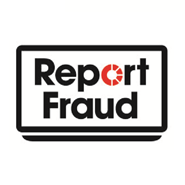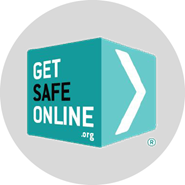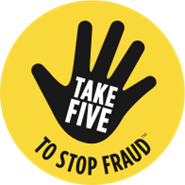
Holiday Scams
How to protect yourself from scammers who impersonate or create fake websites to trick you into booking a holiday through them.
What is a holiday scam?
Holiday scams are when criminals impersonate trusted websites or creates fake adverts in the hopes that you’ll book your holiday through them. They’ll most likely advertise offers at lower than usual prices and apply pressure for you to pay quickly before the offer expires.

Suspicious social media and website
These scams may seem tempting with an unbelievable deal, but fraudsters will create a fake booking website social media profile that look like legitimate travel company with a convincing brand look and fabricated customer testimonials.

Urgency
Fraudster may create a false sense of urgency and use pressure tactics such as claiming the deal is only available for a limited time only or others are already booking.

Payment Request
If you’re asked to send money urgently, always be suspicious. To appear credible, they may send booking confirmations, invoices, and receipts to make the payment process feel real.
Protect yourself from Holiday fraud
- Research the company you’re booking through, read reviews and be cautious of any “too good to be true” offers.
- Make sure you’re on a genuine seller’s website by double checking website links.
- Avoid clicking on links from social media, message or email – always visit the seller’s website directly.
- Search accommodation on other websites to check prices and make sure the location exists.
- Always use a secure payment platform from trusted retailers – avoid paying with bank transfer.
- If you’re booking a package holiday, make sure the tour operator or travel company is a member of a recognised trade association such as ABTA or ATOL.
Before you go Overseas
- Make sure your card company has your up to date contact details.
- Ensure you have your card company’s 24-hour telephone number with you in case you need to contact them.
- Only take cards you intend to use, leave the others securely at home.
When you are Overseas
- Don’t let your card out of sight, especially at restaurants and bars.
- Don’t give your pin to anyone, even if they claim to be the police or your card company.
- Shield your pin when typing it in.
- Look after all your other belongings like passports, phones, wallets, purses, travel and ticket information.
When you get back
- Check your card statements for any unfamiliar transactions. If you do spot any, report them to your bank immediately.
- Check your bank account balance regularly to make sure that you are aware of any funds that have been withdrawn from your account without your authorisation.
- If you think you have been scammed, contact your bank immediately on a number you know to be correct, such as the one listed on your statement, their website or on the back of your debit or credit card.
Other types of common scams
Fraud and Security
Investment scams
Protecting yourself from criminals offering fake investment opportunities.
Fraud and Security
Purchase scam
How to spot when scammers are promoting goods or services that don’t exist.
Useful Resources

Report Fraud
Report Fraud is the UK's national reporting centre for fraud and cybercrime. This is where you should report fraud.

Get Safe Online
Get Safe Online is the UK's leading awareness resource, and offers free online security advice to help protect people and businesses from fraud and other issues.

Take Five
Take Five offer impartial advice to help prevent email, phone and online fraud. The national campaign focuses on criminals who impersonate trusted organisations and gives you tools to help fight fraud.